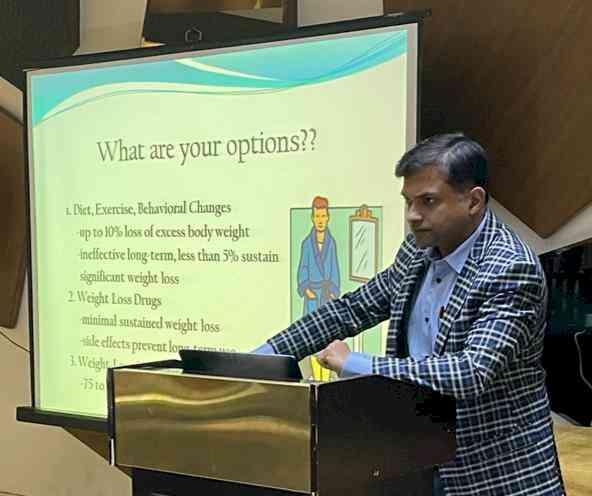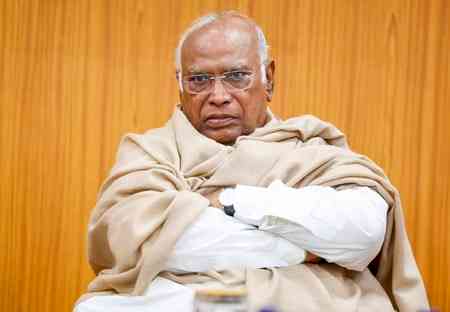Metabolic Surgery: Long term solution for weight loss and diabetes under insurance, says Dr. Nitin Bansal

Karnal, November 19, 2021: According to Dr. Nitin Bansal (MS), Advanced Laparoscopic & Bariatric Surgeon & Head of the Department GI & Gen Surgery, Mool Chand Kidney Hospital, Karnal, obesity should not be taken lightly. He said that “Obesity is a complex disease that can impact the physical, mental and socio-economic well-being of the individual. The World Health Organization has termed the increased prevalence of obesity and diabetes as a ‘21st Century epidemic’. The twin epidemics of obesity and type 2 diabetes are on the rise. Obesity is the most frequently encountered metabolic disease worldwide. Moreover, its incidence and prevalence are rising rapidly. More than half of the world's population is overweight. Being overweight constitutes a health risk as it is associated with several co morbidities including type 2 diabetes mellitus (T2DM), cardiovascular diseases, hypertension, dyslipidaemia, hyperuricaemia, respiratory diseases, osteo-arthritis and depression. The vertiginous rise in obesity triggers a parallel upward swing in diabetes mellitus statistics. A strong relationship between obesity and the onset of diabetes has been reported in several studies. The risk of diabetes increases exponentially as BMI increases above about 25 kg/m. In a large cross-sectional study in middle aged Indians, a BMI>23 was found to be associated with increased risk for type 2 diabetes.
It has been over 10 years since the resolution of type 2 diabetes was observed as an outcome of surgical treatment of morbid obesity. Moreover, it has been shown unequivocally that diabetes-related morbidity and mortality have declined significantly postoperatively, and this improvement in diabetes control is long lasting.
Dr Nitin Bansal added, “The most common cause of rising incidence of obesity is sedentary lifestyle and social habits that lead to frequent dining out. There is an increasing tendency to eat junk food or overeat at buffets. Usually these large meals are accompanied by high alcohol consumption. Having said that, obesity is a multifactorial disease and can run in families due to genetic factors.
Dr Nitin Bansal has also made a point that Obesity has been seen to be an independent risk factor for severe Covid-19 infection, even if the patient does not have any other disease. Various studies have demonstrated that the association between obesity and poor composite outcomes in COVID-19 was stronger in younger people, so they need more and early care. Covid-19 has been especially leading to complications in patients who are having Body Mass Index (BMI) more than 30. Recent evidence confirms that obesity weakens the immune system and therefore, making the host vulnerable to infectious diseases. Indeed, Obesity has emerged as a strong risk factor for severe disease in the current pandemic disease, COVID-19.
According to Dr Nitin Bansal delivery of the food to a distant part in the intestine generates higher hormonal response to carbs and sugar thus resulting in much better control of diabetes. Metabolic surgery also controls cholesterol apart from making diabetes better.


 cityairnews
cityairnews 










